
One spring day when I was a teenager, we were sailing across Poole Bay as we had many times before. All of a sudden, an unremarkable day turned into a special one as three dolphins came rushing towards us to play around the bow. I abandoned the tiller to my father and rushed forward to lie on the foredeck, leaning over as far as I dared and laughing with sheer delight to watch them bow-riding.
They were bottlenose dolphins, though I didn’t know it then. We’d never seen any before and I didn’t know much about dolphins. And I certainly never imagined it was possible to see whales in British waters.
Since then, in many years of sailing and marine surveys around the UK, I have seen hundreds of dolphins and porpoises and more than a few whales. Even so, my tally of 13 species of cetaceans, as they are collectively known, is only around half the total number to have been recorded.
But I still remember those first dolphins and I never get tired of watching them.
Whales and dolphins can seem impossible to identify at first but it becomes easier once you know what features to look for.
The first challenge is to see them in the first place, after all these are animals that spend most of their time underwater and often show little when they do surface.
A cetacean surfacing may appear as a dark or shiny object depending on the light. Other cues are splashes or a wave going the ‘wrong’ way. The first thing I noticed on that early encounter in Poole Bay was a small breaking wave where there shouldn’t have been one.
This story is from the February 2020 edition of Practical Boat Owner.
Start your 7-day Magzter GOLD free trial to access thousands of curated premium stories, and 9,000+ magazines and newspapers.
Already a subscriber ? Sign In
This story is from the February 2020 edition of Practical Boat Owner.
Start your 7-day Magzter GOLD free trial to access thousands of curated premium stories, and 9,000+ magazines and newspapers.
Already a subscriber? Sign In

Orca sink yacht in Strait of Gibraltar
Spain's maritime rescue service, Salvamento Maritimo, has reported that a 15m (49ft) yacht sank in Moroccan waters in the Strait of Gibraltar following interaction with a pod of orca.

No kill cord or lifejackets were worn during fatal powerboat crash
A kill cord and lifejacket are useless unless worn-that's the warning from the Marine Accident Investigation Branch (MAIB), following its investigation into a powerboat crash that killed a 32-year-old woman and five-year-old girl on 2 October 2022.

Multihull sail work
Brush up on multihull sailing skills before heading off on charter with Gavin Le Sueur's guide to spinnaker handling, tacking and gybing
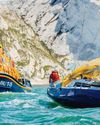
Five top causes of engine failure and how to prevent them
Jake Kavanagh talks to Sea Start marine engineer Nick Eales about how to avoid the five major causes of an engine breakdown at sea

Sail the Atlantic with strangers
Would you sail across the Atlantic with someone you've just met? Ali Wood meets the cruising crews who've done just that
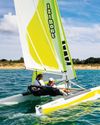
IZIBoat: simple sailing
Rupert Holmes sails an innovative catamaran design intended to widen participation in sailing among those with little time to get on the water in more conventional craft
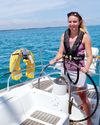
30 WAYS TO GET AFLOAT
From tall ships to small dinghies, you needn't own a boat to sail. Ali Wood looks at the options, and how skippers can also find crew
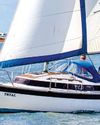
Boats for restoring under £20,000
Duncan Kent picks the best sub-35ft sail and power boats to look for when aiming to undertake a restoration on a budget
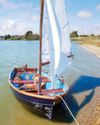
Seaworthy dinghies for less than £500
For low cost traditionally-styled GRP trailer-sailers, consider the Foreland and the Otter available at bargain basement prices
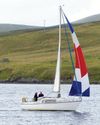
Playing with coloured sails
Maintaining an hourglass-shaped balloon and ratcheting up the log numbers